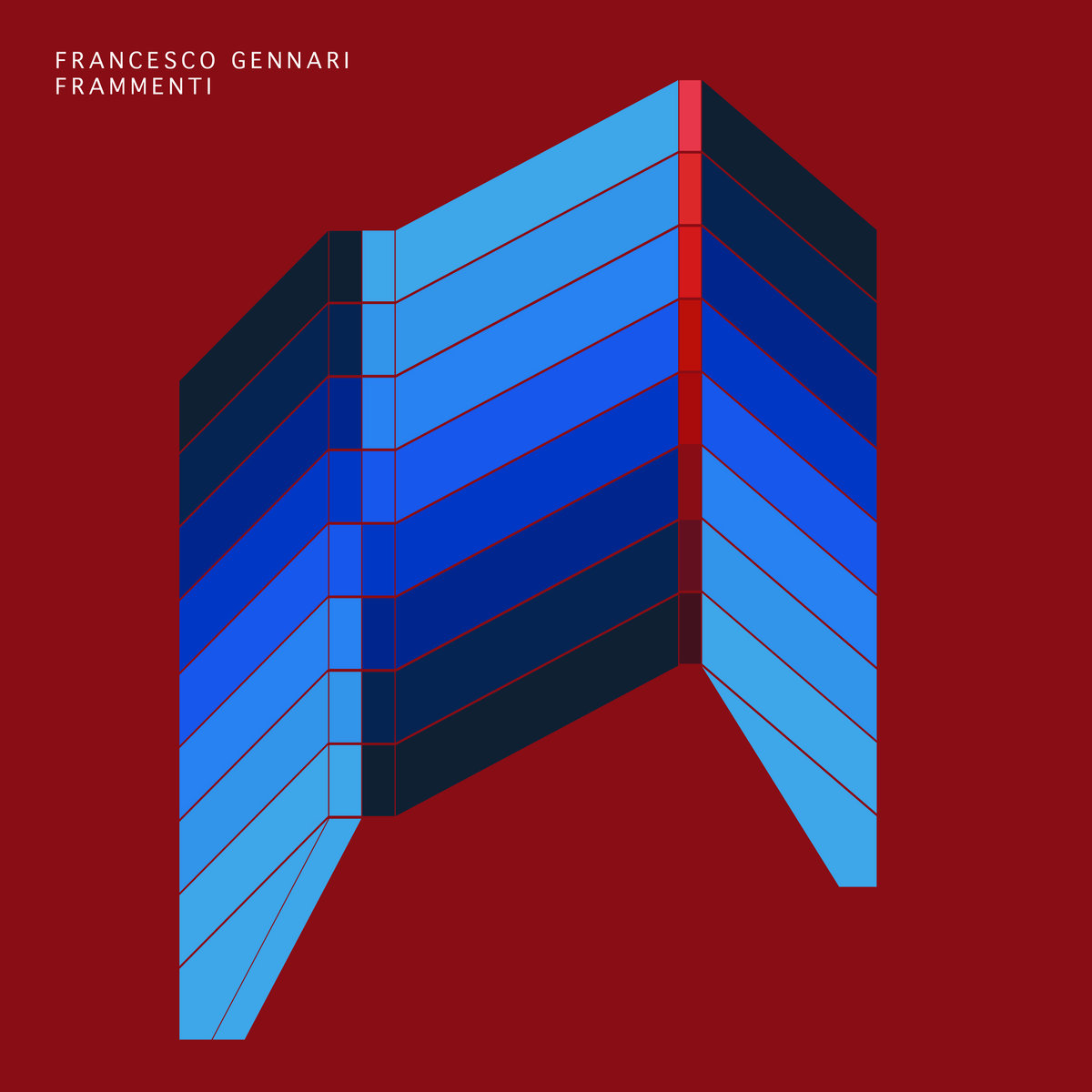 It is immediately clear from the opening piece "Preludio" that this is music composed with an unusually clear sense of structure and direction. As a classically trained pianist, Francesco Gennari has a solid grounding in music theory and he applies this knowledge to modular synths, with an authentic desire for experimentation and some serious chops; he can play. What elevates this debut recording even further is his ability to develop complex pieces from simple themes, while injecting energy and a sense of aggression and dynamics into his music.
It is immediately clear from the opening piece "Preludio" that this is music composed with an unusually clear sense of structure and direction. As a classically trained pianist, Francesco Gennari has a solid grounding in music theory and he applies this knowledge to modular synths, with an authentic desire for experimentation and some serious chops; he can play. What elevates this debut recording even further is his ability to develop complex pieces from simple themes, while injecting energy and a sense of aggression and dynamics into his music.
Having grown up during the prog rock heyday of the early 1970s, knee deep as we were in the truly awful and the absolutely bloody magnificent, I hesitated to refer to Gennari as "classically trained." Back then, and particularly when applied to guitarists or keyboard players, this phrase became almost a code word for impressive speed and an elite technique almost inevitably leading to impressive dullness and top notch overcomplexity. No such pitfalls with Frammenti, though, and there is not a dull moment on this entire album. It smacks of a brilliant sci-fi soundtrack. In fact if I were Ridley Scott I'd redo Blade Runner, keeping the best bits of Vangelis, erasing all traces of the white dove, and liberally applying some Frammenti. (Then I'd also demand that Dennis Villeneuve recall and destroy all copies of Blade Runner 2049 but that's another story).
Among the many highlights I hear an abrasive delicacy in "Ardere" with its shockingly brilliant expanding and splintering crescendo. "Mimosa" exemplifies how Gennari can hone in on sleek repetition and then stick to his guns, by all means deviating simple patterns but never losing the plot by doing so too wildly. "Rifugio" is mind blowing good—as if crystalline drips of hyper sound are bouncing off the skin of an alien surface stretched tighter than a drum. The piece has amazing textures and a lush, aching, sonorous quality.
There is an algebraic quality to all these compositions, as Gennari uses counterpoint and harmonic development to extrapolate his fairly simple chosen melodic and rhythmic themes. There are also emotional elements too. Frammenti has a near-perfect balance of winning restraint, with experimentation and textural distortion enjoyed but not allowed to obliterate or even obscure these rather thrilling and affecting tunes.
Read More

